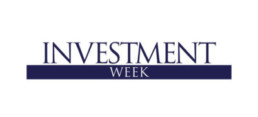Omicron fails to derail UK labour market recovery as unemployment falls
The UK labour market has continued to recover as the latest official figures showed unemployment fell and job vacancies reached a record high.
Deep Dive: 'Allocators face a tricky choice this year'
Our fund manager, Cormac Nevin deep dives into US equities warning that allocators face a tricky choice this year and should not stray too far from the index.
The World In A Week – TikTok – is the clock ticking for Facebook?
Written by Richard Warne.
Last week saw equity markets rebound, with the global index MSCI All Country World Index up +1.1% in Sterling terms, but this masked a high degree of volatility beneath the surface. Earnings’ season has got under way in the US in earnest, and the past few weeks have been quite a ride for equity markets. It appears investors are broadly reassessing valuations and positioning against a backdrop of tightening financial conditions.
A case in point, on Friday the Nasdaq 100 Index in the US fell over -4%, the biggest one-day loss since September 2020, yet still managed to end the week in positive territory. Let’s take a look at some of the US technology stocks that reported last week and the subsequent market reaction. Facebook, or ‘Meta’ as it is now known, fell over -25% wiping a staggering $230bn+ of market cap in one day. The Company blamed TikTok competition, and revenue headwinds and supply chain related cost increases for a substantial miss on its earnings numbers.
A similar story was unfolding in Snapchat, where investors were abandoning the stock in anticipation of difficult earnings’ numbers. The stock price fell over -20% by Thursday, and by the close of Friday this had turned into nearly a +30% gain! The Company ended up smashing revenue forecasts and forward guidance. At the same time, Amazon was caught up in the melee, taking a hit earlier in the week, only to rebound over +13% on Friday. The week certainly reflected plenty of overexcitement from investors racing to get ahead of the pack on earnings’ expectations. Wild times!
It’s not hard to see that this heightened volatility could continue, with the Fed’s hawkish stance on tapering and raising rates continuing to send jitters through bond markets and equity markets alike. Hold tight!
Any opinions stated are honestly held but are not guaranteed and should not be relied upon.
The information contained in this document is not to be regarded as an offer to buy or sell, or the solicitation of any offer to buy or sell, any investments or products.
The content of this document is for information only. It is advisable that you discuss your personal financial circumstances with a financial adviser before undertaking any investments.
All the data contained in the communication is believed to be reliable but may be inaccurate or incomplete. Unless otherwise specified all information is produced as of 7th February 2022.
© 2022 YOU Asset Management. All rights reserved.
The World In A Week - Hiking uphill from here
Written by Millan Chauhan.
Last week, the Federal Open Market Committee decided on Wednesday to hold interest rates at 0.25%. Following the announcement, we saw the US 10-year bond yield reach 1.87% which is often a proxy used to discount company valuations. This saw US markets sell-off, having opened higher at the start of the day, which illustrates how sensitive markets are to new information and ultimately how volatile markets have become.
Despite interest rates being held still, the Federal Reserve did signal that a rate hike of 0.25% may be likely in March 2022 which would be the first time the Fed has raised rates since 2018. The Federal Reserve still remains committed to keeping inflation at the 2% target and, with the US inflation rate at 7% in December 2021, there are expectations that a sequence of rate hikes is likely to occur for the rest of 2022.
Tensions between NATO and Russia remain high, and a solution has yet to be agreed. Russia has recently deployed roughly 100,000 troops on Ukraine’s borders, prompting warnings from the West that there would be consequences if they were to invade its pro-Western neighbour. Boris Johnson is set to speak to Russian President Vladimir Putin virtually and subsequently visit eastern Europe in the coming days as the UK increases its diplomatic efforts. Johnson has offered NATO a further 900 troops for deployment in Estonia and Foreign Secretary Liz Truss has said that Russian oligarchs will be faced with severe sanctions should Russia invade Ukraine.
Any opinions stated are honestly held but are not guaranteed and should not be relied upon.
The information contained in this document is not to be regarded as an offer to buy or sell, or the solicitation of any offer to buy or sell, any investments or products.
The content of this document is for information only. It is advisable that you discuss your personal financial circumstances with a financial adviser before undertaking any investments.
All the data contained in the communication is believed to be reliable but may be inaccurate or incomplete. Unless otherwise specified all information is produced as of 31st January 2022.
© 2022 YOU Asset Management. All rights reserved.
The World In A Week - A call to arms
Written by Shane Balkham.
The Federal Reserve set out its stall for 2022 in its December meeting last year, with an acceleration in the ending of their asset purchase programme, which would clear the way for potentially three rate hikes this year. This was useful forward guidance from the world’s most important central bank.
The Federal Open Market Committee is meeting this week to discuss and plan the orderly removal of liquidity, mainly to combat the continuing rise in inflation. The rhetoric of just one month ago now seems stale, as the market is now looking for four rate hikes in 2022. The backdrop of rising inflation has seen investors calling for more action from the Central Bank. Jamie Dimon, CEO of J.P. Morgan, is looking for a more aggressive Fed. He was quoted as saying “there is room for six or seven rate hikes this year”.
Whatever the outcome of the meeting this week, the Fed needs to move quickly as markets look to move ahead of where the Central Bank was aiming. It is a call to arms for the policymaker to take significant and appropriate actions.
Another battle, that is hopefully not going to be fought, is also becoming increasingly tense. This was brought into the media spotlight last week with President Biden claiming an incursion by Russia was likely. A new approach to avoiding a potential war has been to make the situation public. This war of words has arguably stolen Vladimir Putin’s ability to surprise but has equally shown the West to be disjointed in knowing how to handle Russia.
However, this could be perceived as having backed Putin into a corner, with Moscow reaffirming its original warning of “unpredictable and grave consequences” if the US does not concede to rolling back the expansion of NATO. This is precariously balanced with deterrents and decisions at a decisive juncture.
Microsoft announced its $70 billion deal to acquire video game developer Activision Blizzard. Known for online gaming series Call of Duty, Candy Crush, and World of Warcraft, this is a land grab for expertise in the early stage of the Metaverse. The deal reverberated across the gaming industry with Sony taking the brunt of the negative share price reactions, as Microsoft looks set to turn itself into one of the biggest creators of online gaming.
This is the biggest deal in Microsoft’s history and will undoubtedly attract scrutiny from the US antitrust regulators, who have been readying themselves to tackle the dominance of ‘Big Tech’.
Any opinions stated are honestly held but are not guaranteed and should not be relied upon.
The information contained in this document is not to be regarded as an offer to buy or sell, or the solicitation of any offer to buy or sell, any investments or products.
The content of this document is for information only. It is advisable that you discuss your personal financial circumstances with a financial adviser before undertaking any investments.
All the data contained in the communication is believed to be reliable but may be inaccurate or incomplete. Unless otherwise specified all information is produced as of 24th January 2022.
© 2022 YOU Asset Management. All rights reserved.
Multiple rate rises predicted as inflation surges to 30-year high
CPI inflation rose by 5.4% in the 12 months to December 2021, the highest rise since 1992, according to the latest ONS statistics.
The World In A Week - Are we in for a wild ride?
Written by Richard Warne.
It was a real mixed bag last week in terms of returns within the equity markets with the MSCI All Country World Index down -0.6%, and the S&P 500 in the US down -1.1% in Sterling terms. It was really pleasing that it was not a sea of red across the board, with MSCI Emerging Markets +1.7% and the FTSE All Share Index +0.2% in Sterling terms, while the worst performing region was MSCI Europe Ex-UK with the region down -1.4%. This worked fantastically in terms of our tactical equity positioning, as we are overweight in Emerging Markets and the UK and underweight in the US & Europe ex UK.
Looking back over the last week there has been a barrage of headlines in the media in regard to food price inflation “Italian’s face pasta price increase of almost 40%”, then “Empty shelves”, “Off the menu”, “Flight curbs”, “Raising cane”, “Winter winner”, “Soaring butter”, “Getting hit” & “Peak fertiliser” are just a few to catch our attention. So, we have shortages of fried chicken in Japan, dairy prices spiking in the US, swine flu killing the pork market in parts of Europe, supply chain chaos in India impacting sugar cane prices, flight curbs in Hong Kong disrupting importation of goods. Higher fertiliser prices, difficulty recruiting labour, rising transportation costs and materially higher energy costs. We have talked about inflation in previous issues, and it certainly appears to be perforating through many areas – one suspects it will remain high on the agenda as we move through 2022. The jury is out on if we are getting close to “peak” inflation, with markets pricing in four possible rate hikes for 2022, and a balance sheet runoff that highlights just how different these tighter financial conditions are compared to just a few months ago.
Markets have had a wild start to the year. The news flow, volatility and macro events have come thick and fast, sending rates higher as the US 10 year Treasury yield ended the week at 1.78%, and the Nasdaq 100 was down for a third straight week. If this start is anything to go by, it’s fair to say this could be a challenging year. Valuations, fundamentals, the ongoing pandemic, tightening Fed cycle and increased political tensions are the backdrop for investors to navigate. This all sounds bearish, and we all should be acutely aware of the risks, but if markets don’t necessarily grind higher as they did through last year, then it could be an environment where positioning and stock picking can add real value to portfolios.
Any opinions stated are honestly held but are not guaranteed and should not be relied upon.
The information contained in this document is not to be regarded as an offer to buy or sell, or the solicitation of any offer to buy or sell, any investments or products.
The content of this document is for information only. It is advisable that you discuss your personal financial circumstances with a financial adviser before undertaking any investments.
All the data contained in the communication is believed to be reliable but may be inaccurate or incomplete. Unless otherwise specified all information is produced as of 17th January 2022.
© 2022 YOU Asset Management. All rights reserved.
UK GDP beats consensus forecasts but experts warn of bleak data for 2022
UK GDP returned to pre-pandemic levels during the month of November following growth of 0.9%, according to the latest figures from the Office of National Statistics, although industry commentators warn that Omicron fears near the end of the month could feed through to December’s data.
The World In A Week - Taper Tantrum Two?
Written by Cormac Nevin.
After an exceptionally strong 2021, markets started the New Year on a weaker footing. Equities as measured by the MSCI All Country World Index were down -1.7% in GBP terms. Fixed Income also provided little solace as rising interest rates left global treasuries down -1.0% for the week and riskier high yield bonds were also down -0.7%. The Equity sell-off was concentrated in the US growth/tech space, as the NASDAQ index of tech superstars fell -4.6% and the broader S&P 500 Index was down by -2.1%. One bright spot for the global equity landscape was our very own UK Equity market, where a high concentration of Financial and Energy stocks allowed the FTSE All Share Index to rally +1.0% as markets around the world fell. This gives some pleasing momentum to what has been one of the most unloved equity markets of the last five years.
The principal cause of this pullback in markets was the release of the minutes from the US Federal Reserve’s December meeting that illustrated the increased concerns of the Board members pertaining to the rate of inflation being experienced by the US economy. The members also concluded that economic growth was likely to be robust in 2022. This was interpreted by markets as a green light for the Fed to end the stimulus programme, which it has had in place since the start of the pandemic, earlier than previously anticipated. This view was further spurred on by the release of jobs data in the US on Wednesday that showed the unemployment rate drop to just 3.9%, despite new job creation coming in at only 50% of what was anticipated. This indicated to markets that we may be even closer to the Fed’s goal of “full employment” which gives them further scope to reduce stimulus. Markets eagerly await the latest US inflation data due on Wednesday of this week.
Other geopolitical events also paint a vista of potentially choppy waters as we enter 2022. Revolution in Kazakhstan, great power games in the Ukraine, and the possibility of the Omicron variant disrupting supply chains in the Far East all pose potential upside risks to inflation. We think our portfolios are well equipped to handle what 2022 might bring, and our focus on great companies trading on sensible valuations combined with unique diversifiers remains unchanged.





The World In A Week - Roses are red, the markets are too
Written by Cormac Nevin.
Last week was a busy one with regards to both news flow and market movements. The MSCI World Index of developed market equities was down -1.2% for the week in GBP terms, compounding a -2.0% return for the month to date and -6.3% for the year to date. This was led (once again) by a strong sell-off in US tech and growth names, with the NASDAQ 100 down -3.5% last week capping a -13.0% year to date loss. Markets are having to adjust to a higher inflation and higher interest rate environment, coupled with geopolitical risks around Ukraine and Taiwan. Fixed Income provided little buoyancy for investors as interest rates continued to rise, in particular the Sterling credit & gilt market has been a very poor performer.
The standout market event of last week was the release of Consumer Price Index data in the US on Thursday which illustrated that once again prices were rising faster than expected. This led to comments from Federal Reserve members implying that monetary policy needs to be tightened more rapidly, even potentially involving a rate rise of 1% by July. Markets are now concerned that developed market central banks, particularly those in the US and UK, are now meaningfully “behind the curve” and that the persistency of inflation has taken them by surprise.
Higher inflation readings are being sustained by ongoing global supply chain issues as economies in the Far East are disrupted by the spread of the omicron variant. Tight labour markets also increase the risk of economies entering into a wage-price spiral, despite the handsomely remunerated Governor of the Bank of England suggesting workers hold off on wage increase demands. The machinations of Mr Putin are keeping energy prices high and the market jittery, while romantics out there will also be sad to hear that the price of cacao continues to trade close to its five-year high.
Any opinions stated are honestly held but are not guaranteed and should not be relied upon.
The information contained in this document is not to be regarded as an offer to buy or sell, or the solicitation of any offer to buy or sell, any investments or products.
The content of this document is for information only. It is advisable that you discuss your personal financial circumstances with a financial adviser before undertaking any investments.
All the data contained in the communication is believed to be reliable but may be inaccurate or incomplete. Unless otherwise specified all information is produced as of 14th February 2022.
© 2022 YOU Asset Management. All rights reserved.